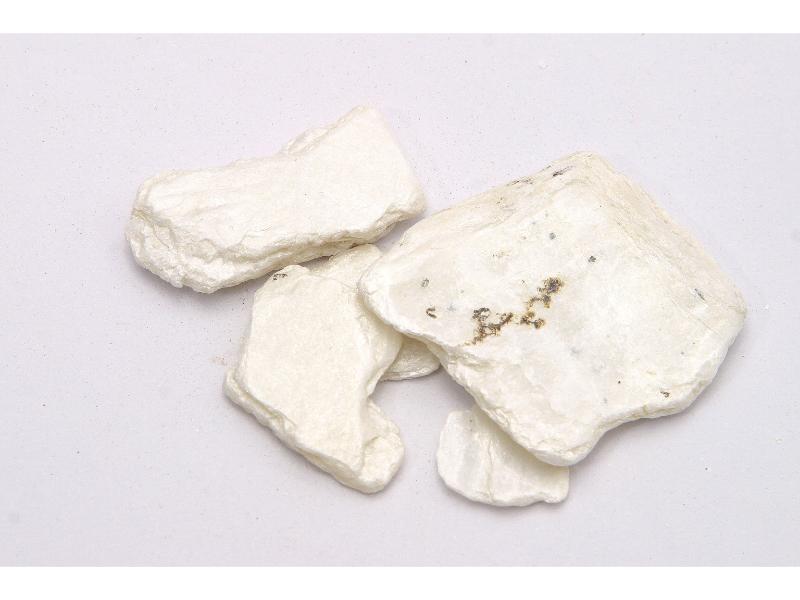Search in medicinals
Talcum
Talcum
滑石 〔滑石〕 huá shí

Alternate English names: talc
Alternate Chinese names: 夜石 yè shí; 共石 gòng shí; 脱石 tuō shí; 番石 fān shí; 夕冷 xì lěng; 脆石 cuì shí; 留石 liú shí
Kingdom: Plant
Origin in PRC Pharmacopoeia: A mineral mainly composed of magnesium silicate [Mg₃(Si₄O₁₀) (OH)₂]. (PRC Pharmacopoeia)
Use: Medicinal
Category: Water-disinhibiting dampness-percolating agents / Urine-disinhibiting strangury-freeing agents
Properties: Sweet, bland; cold.
Channel entry: Stomach and bladder channels.
Actions and indications:
- Disinhibits water and frees strangury: Heat strangury or stone strangury with painful
rough urination . - Clears heat and resolves summerheat: Summerheat-heat; damp-warmth disease.
- Absorbs dampness and closes sores:
Damp sores , eczema.
Dosage and method: Oral: 10–15g; huá shí should be decocted in a cloth bag. It is frequently used externally as well.
Warnings: According to some sources, huá shí is contraindicated or to be used with care in pregnancy, spleen vacuity, and damage to liquid from febrile disease. Airborne particles of huá shí should not be accidentally inhaled when filling prescriptions or using it externally (reports of carcinogenic effects have been associated with inhalation).
Product description: Talcum [Mg₃(Si₄O₁₀) (OH)₂] comes in flat, rhomboid or irregularly shaped lumps of varying size. It is white, sometimes with a bluish hue, or yellowish white and has a pearly sheen. It may be opaque or semitranslucent. It is soft and fine in substance, allowing a powder to be scraped off with the fingernail.
Quality: Large, clean bluish white pieces are the best.
Production area: Shāndōng, Jiāngxī, Liáoníng.
Etymology: 滑石 (huá shí), literally slippery stone,
refers to the smooth quality of especially the ground stone.